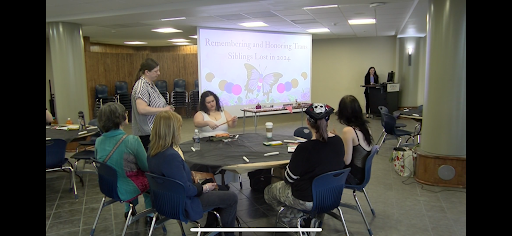James McClendon, Asst. News Editor
Only a month and a half into 2016, North Korean politics and technological development has been at the forefront of global attention and international scrutiny.
On Jan. 6 North Korea claimed to have successfully tested a hydrogen bomb. The claim was met with strong United Nations disapproval, which condemned the testing as a clear violation of restrictions already imposed on North Korea.
On Feb. 7 North Korea Launched a long-range missile that it said put a satellite into orbit. The United Nations called this a cover for a banned test of a technology that could strike the United States.
At a South Korean Emergency National Security Council meeting in Seoul, President Park Geun-hye called the firing an “intolerable provocation.”
North Korea responded by calling the launch part of a peaceful space program and vowed more such launches.
According to Assistant Professor of Government, Dr. Jun Kwon, there has been a two main approaches that the United States has implemented in order to deter the further development of North Korean nuclear capabilities. The first being a show of military strength in the region and the second being the imposition of sanctions.
The U.S. and South Korea formally discussed the deploying of a Terminal High Altitude Defense system (THAAD) after North Korea’s announcement of successfully launching a satellite into orbit.
The U.S. has already seen opposition to these discussions by China and Russia.
“We have seen international backlash about a missile defense system in South Korea,” Kwon said, “Russia and China have already expressed their concerns with South Korean ambassadors.”
Congress overwhelmingly passed legislation on Feb. 12 that would broaden sanctions to punish North Korea for its nuclear program, human rights violations and cyber-crimes. The measure was sent to President Obama for executive approval.
The legislation would also place sanctions on any other country which facilitates or contributes to North Korean development of weapons of mass destruction, arms-related materials, human rights violations and activities undermining cyber securities.
The legislature penalties include seizure of assets, visa bans, and denial of government contracts.
Dr. Kwon believes the escalated tensions in Southeast Asia could lead to another Cold War with North Korea, China, and Russia on one side and South Korea, the U.S., and Japan on the other.
To best understand the issues Kwon would like Utica College students to “see North Korea for what it really is.”
“I wanted to teach Korean politics so I could get students to have a neutral attitude and perception of North Korea,” Kwon Said.
Kwon teaches international relations because he wants students to have some sense of what is going on in international politics and to not blindly follow the messages of mainstream media. Kwon encourages students to learn as much about international issues and form opinions and judgements for themselves.


















![President Todd Pfannestiel poses with Jeremy Thurston chairperson Board of Trustees [left] and former chairperson Robert Brvenik [right] after accepting the university's institutional charter.](https://uticatangerine.com/wp-content/uploads/2023/10/unnamed.jpeg)



















































































































